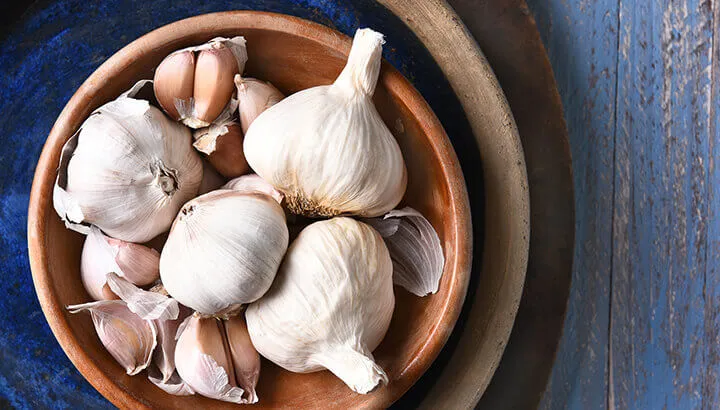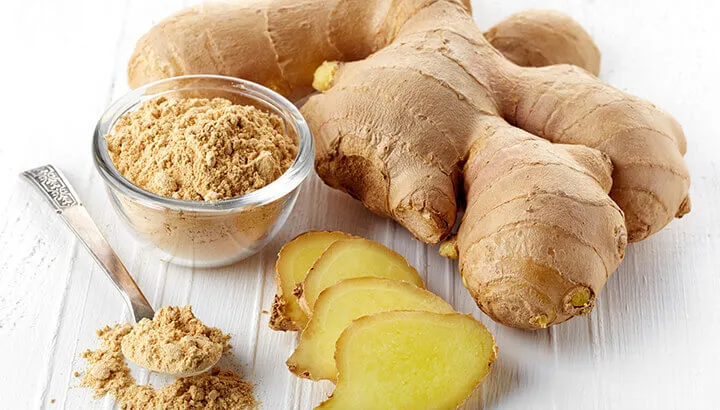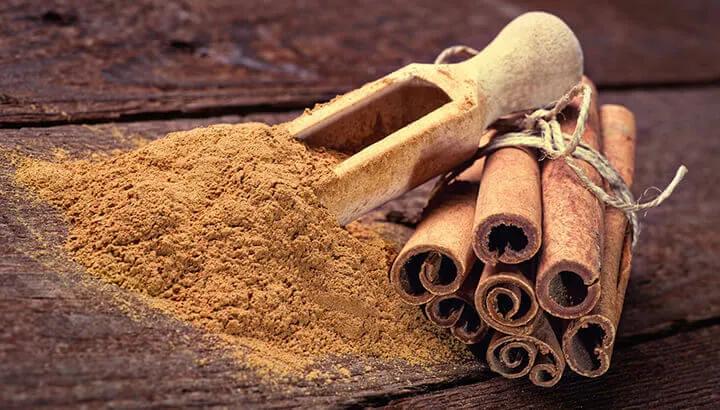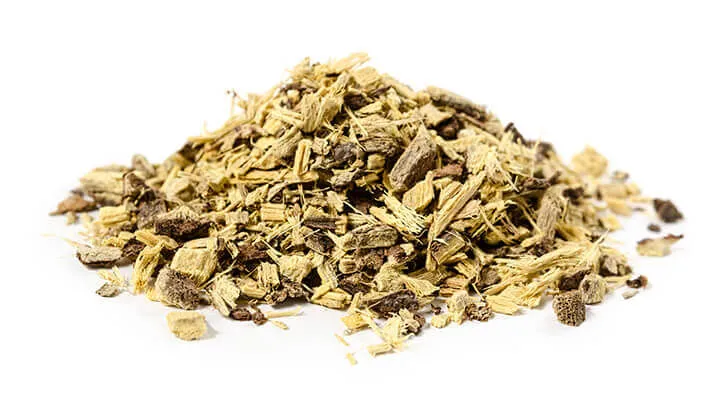
- Share on Facebook393
- Share on Pinterest
- Share on Twitter
If you’ve ever had bronchitis, you know that it is beyond miserable. No matter what you do, you can’t seem to escape that nagging cough, chills, a heavy chest and overwhelming fatigue.
Luckily, I have only ever had acute bronchitis, in comparison to chronic — which can last anywhere from a few months to a couple of years. Just imagine suffering from this respiratory disease for months on end, as the mucus membrane in your lungs becomes inflamed and swollen.
If you can relate, you are more than likely looking for support. And to be honest, there’s no better place to look than nature. Skip the cough suppressants and try some or all of these natural remedies. Not only will you target specific symptoms of bronchitis, but you’ll also enhance your immune system.
Ways to treat bronchitis naturally
When symptoms begin to surface, many head to their local doctor’s office where they will receive an array of medications. There are literally dozens of drugs recommended for this condition, none which I can pronounce, of course. As you’d imagine, they each come with their own list of side effects.
Instead, work with your body, providing it with the tools it needs to heal — like these 19 natural remedies.
1. Raw honey
I am not shy regarding my love for raw honey. I love everything about it — starting with the incredible creatures that make it. I’m definitely a “save the bees” kind of girl, so I have gotten to know a number of local bee farmers and in turn, always have the freshest, organic honey.
When you consume unprocessed raw honey, you benefit from a rich source of vitamins, minerals and enzymes. Being alkaline-forming, raw honey will help stabilize immune function and target inflammation. Also, when you’re coughing often, raw honey helps soothe a sore throat.
When you’re feeling ill, simply combine three to four teaspoons of raw honey and mix with 1/2 a teaspoon of cinnamon. This combination creates a strong anti-inflammatory remedy that is ideal for both bronchitis and allergies. Consume two to three times daily, in conjunction with the other treatments listed below.
2. Oregano oil
This is the first year I have tried oregano oil and I have to say, it is most certainly effective. Being one of the strongest natural antibiotics available, it is highly recommended for those seeking bronchitis treatment. The active ingredient, carvacrol, actively targets chest congestion and inflammation.
In fact, this oil has been used since ancient times, as traditional healers would use oregano extract for coughs, flus, sore throats and bronchitis. Offering both antibacterial and antiviral properties, oregano oil helps treat a range of respiratory illnesses caused by both viruses and bacteria.
To take this oil, dilute with olive oil at a rate of one drop olive oil to one drop oregano oil. Using a dropper, administer two drops under your tongue and then flush with water. You may also find capsules, taking 500-milligram doses, four times daily (or as recommended on the label). Steam inhalation also works well, which we’ll discuss shortly.
3. Garlic

My husband hates when I get sick because I always smell like a vampire slayer. I have no problem eating cloves of raw garlic. But I won’t lie, after a few days, you can definitely smell garlic coming out of my pores — yum! Once again, garlic offers both antiviral and antibiotic properties, making it highly effective against bronchitis.
Within one study, published in the Avicenna Journal of Phytomedicine, embryonic chicken eggs were examined in terms of infectious bronchitis virus. After administering garlic extract, it was concluded that this treatment offers clear inhibitory effects. Of course, similar findings have also been reported in humans.
This is based on a number of key components, including allicin, which fights infection and reduces inflammation. With each dose, you also benefit from vitamin A, vitamin C, B-vitamins, calcium, iron and copper. To take, simply mince two cloves, swallow and wash down with water.
4. Turmeric
Turmeric is such a beautiful and versatile spice that not only offers immense culinary benefits but can also improve positive health. From asthma to bronchitis, turmeric has been shown to treat a range of respiratory conditions based on its curcumin content — the active compound that yields this spice’s golden color.
While studying patients with bronchial asthma, the anti-inflammatory properties of turmeric were examined. Group A was given standard medication, whereas group B received standard therapy in addition to daily curcumin capsules. Researchers found that these capsules improved airway obstruction, making turmeric a safe and effective treatment.
5. Salt water
I was gargling salt water four to five times a day when I had bronchitis, trying to find even the smallest amount of relief. No matter what I did, I couldn’t hold back my cough. And after a couple of days, both my throat and chest were in pain. When you gargle with salt water, you actively soothe throat inflammation and reduce the amount of mucus that causes irritation. Each morning, add one teaspoon of sea salt to a glass of warm water. Repeat throughout the day as needed.
Article: 7 Reasons To Drink Warm Salt Water Every Day
6. Ginger

I drink ginger tea every single day — I absolutely love it. Ginger is a rhizome, or root, that has been used for centuries, providing optimal immune support. Based on its anti-inflammatory and immune-boosting properties, it has been shown to support the natural treatment of bronchial irritation. When you’re ill, crush a 1-inch piece of ginger and add it to a cup of boiling water. Allow to steep for three minutes, covered, before drinking. Repeat three to four times daily.
7. Epsom salt
When you’re feeling weak and tired, a hot bath can do wonders. It’s important to feel a sense of relief, reducing mental and physical stress. You can take your bath to the next level with Epsom salts, which are known to promote healing as they are absorbed through the skin.
For those with bronchitis, an Epsom salt bath is recommended twice daily. Simply add two cups of Epsom salt to a hot bath and soak for at least 30 minutes. Not only will this remedy target inflammation, but it will promote resting time.
8. Essential oils
Essential oils are a concentrated gift from nature, offering a full spectrum of health benefits. My husband has asthma and although he has improved tremendously since moving to Canada (from the U.K.), when he is sick, his chest can quickly become tighter than normal.
To help him, I often create a blend of coconut oil mixed with peppermint and eucalyptus essential oils, rubbing it directly on his chest. I would recommend approximately 10 to 15 drops per ounce of carrier oil. You can also utilize these healing oils through steam inhalation or add them directly to your bath.
9. Drink more lemon water
When you have bronchitis, you’ll want to drink plenty of fresh water. This will help thin the mucus and effectively expel it from your body. This is exactly why cough suppressants do not help treat a chest infection, as they reduce your body’s ability to eliminate the infected mucus.
The addition of lemon juice means that you will benefit from vitamin C — a known immune-boosting nutrient. In addition to drinking cold lemon water throughout the day, why not make yourself a lemon honey tea? Within one cup of boiling water, add two teaspoons lemon zest and one teaspoon raw honey. Enjoy two to three times daily.
10. Cayenne pepper
If you’re a fan of spicy food, you’re in luck. When I was sick, I didn’t have much of an appetite, but I did add a dash of cayenne pepper to water and chugged it back twice a day. This potent pepper will help break of the irritating phlegm that results from bronchitis. Also, based on its capsaicin content, cayenne will naturally treat any associated pain.
11. Cinnamon

I mentioned cinnamon above, as it is a great addition to raw honey when treating symptoms of bronchitis. Known to improve blood sugar and cholesterol levels, cinnamon can also treat respiratory conditions. More specifically, this spice will target inflammation and in turn, reduce swelling.
When you’re suffering from bronchitis, you can make a potent remedy by mixing raw honey, ground cinnamon, cloves, ginger, cardamom and black pepper. Each morning, mix this remedy into your tea and then continue to consume throughout the day.
12. Thyme
Thyme is a great herb to grow in the comfort of your home, especially if you’re limited in outdoor space. Not only does it taste great, but this herb can also support the natural treatment of respiratory disorders. Offering antibacterial and spasmolytic properties, thyme will help fight agents that cause bronchitis and reduce a spasmodic cough.
If you have ever taken an herbal cough syrup, you may have noticed thyme as an ingredient. To make this soothing treatment, combine fresh thyme and peppermint leaves, allowing them to steep in boiled water for up to 10 minutes. To enhance the healing properties and flavor of this remedy, add raw honey.
13. Onions
Like garlic, onions offer natural antibiotic properties that can help treat symptoms of bronchitis. When consuming onion juice, you will also benefit from its ability to expel phlegm that has built-up in the lungs. If you’re not one to eat this vegetable raw, finely chop red onion and place it in a jar with honey for 12 to 15 hours. Every two to three hours, take a small spoonful.
14. Steam bath
Steam will be your best friend, helping you find relief. Although it will not cure bronchitis, steam will alleviate your level of suffering. You can fill a bowl with boiling water and add a couple drops of peppermint essential oil. Or, if you have access to a sauna, this will be a great way to reduce irritation and promote sweating.
15. Humidifier
A humidifier will encourage you to breathe in warm, moist air that will help loosen mucus in your airways. Not only will this make it easier for you to breathe, but it will also reduce the severity of your coughs, helping you get a more restful night’s sleep. Ensure that your humidifier is clean and utilize the power of aromatherapy. Add in a few drops of tea tree, lavender, eucalyptus or peppermint essential oil.
16. Mullein tea
Mullein is actually an invasive species within the United States and will often overtake native wildflowers and shrubs. Used as a medicinal tea, this herb is known to be a natural expectorant, sedative, painkiller, astringent and diuretic. To relieve symptoms of bronchitis, simply steep mullein leaves in hot water for 15 minutes before drinking.
17. Avoid dairy
An effective treatment does not just focus on what you should do, but also what you shouldn’t. When you drink milk, you consume lactalbumin, also known as whey protein, which causes you to produce mucus. This serves a purpose for young calves who require extra mucus to protect their stomach and intestinal tracts — but humans don’t.
18. Licorice

I have never been a fan of licorice, but I am a fan of its healing properties. When consuming licorice root tea, you can encourage the breakdown of mucus, allowing you to expel any build up. This ingredient has also been shown to soothe a sore throat caused by excessive coughing. For best results, drink one to two cups daily for a week or until symptoms improve.
19. Slippery elm
There’s a reason why slippery elm has been made into throat lozenges — it works! Native Americans discovered this healing substance within the inner bark of the slippery elm tree. This remedy has been shown to reduce coughing and soothe irritated airways. Although you can most certainly make a slippery elm tea, there are liquid extracts available as well.
The next time you feel a cough developing, take immediate action. With the natural remedies listed above, you will be back to normal in no time while avoiding antibiotics and other potentially harmful medications.
— Krista Hillis
- Share on Facebook393
- Share on Pinterest
- Share on Twitter

